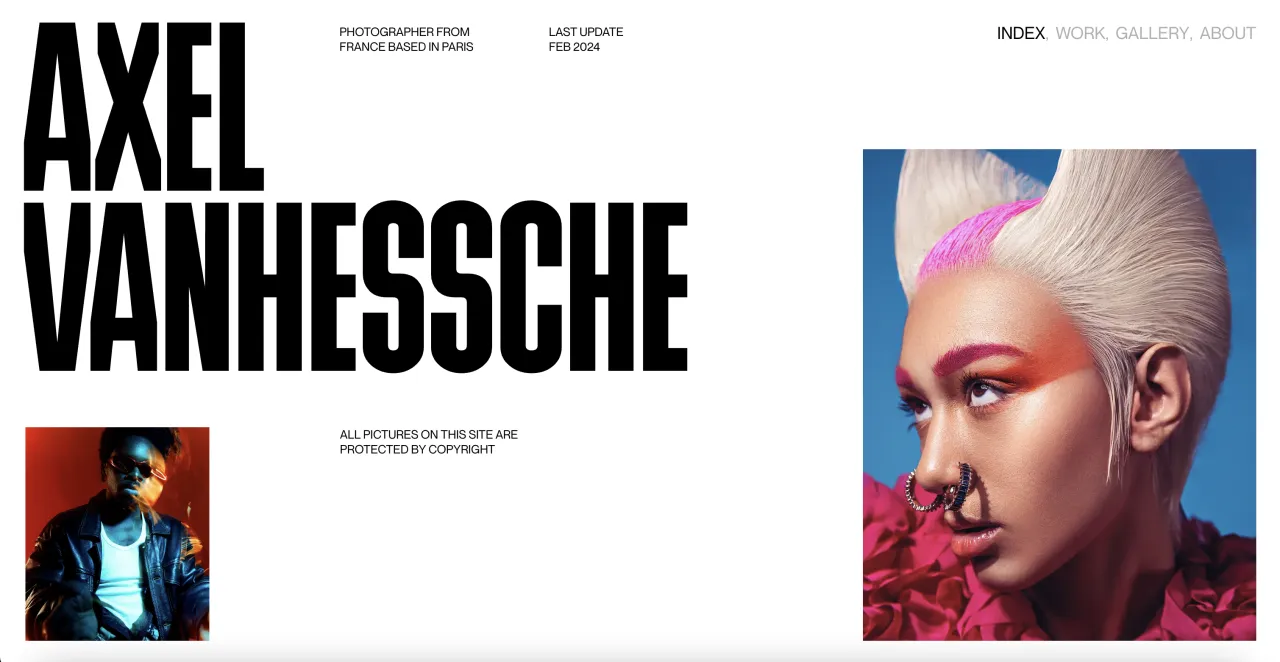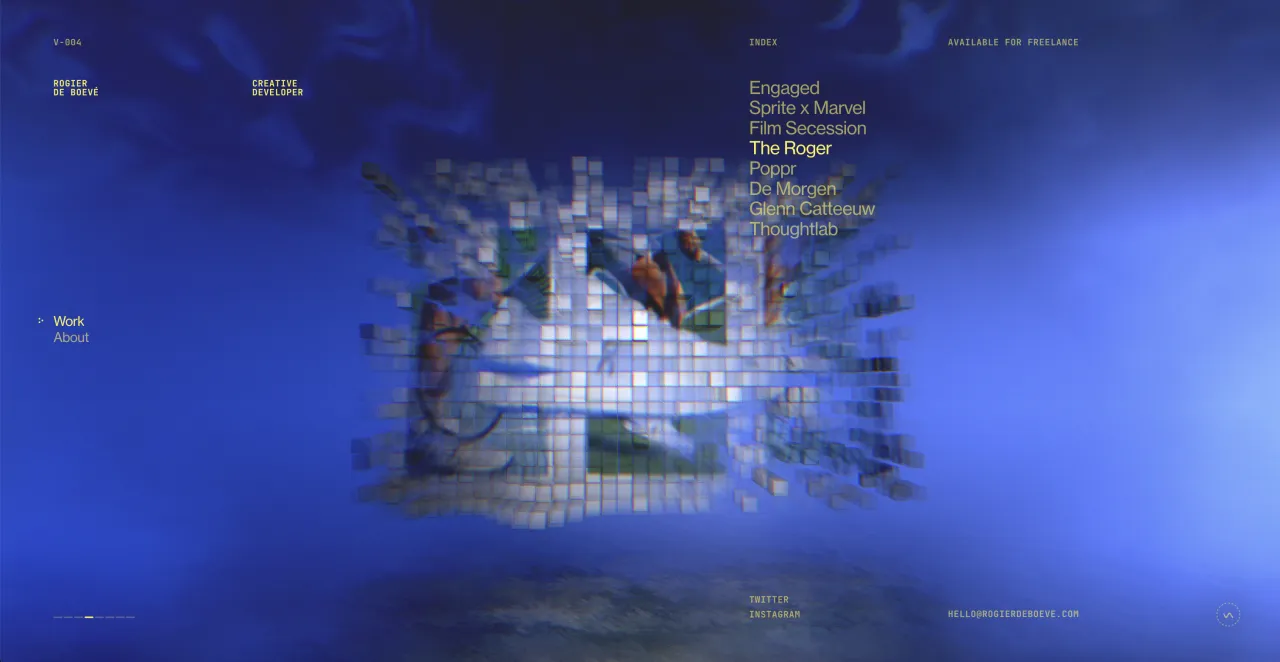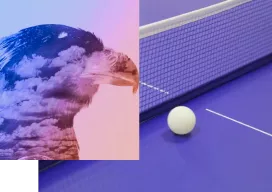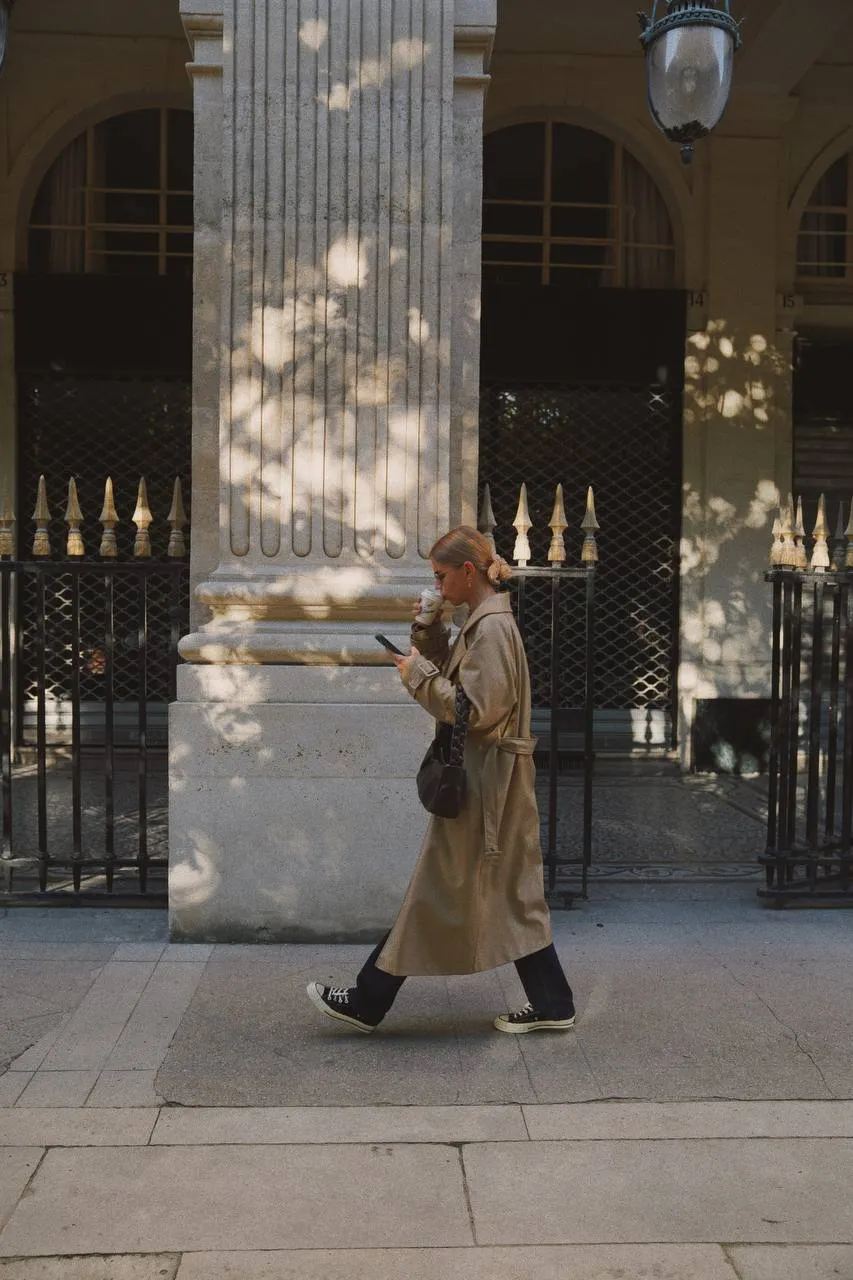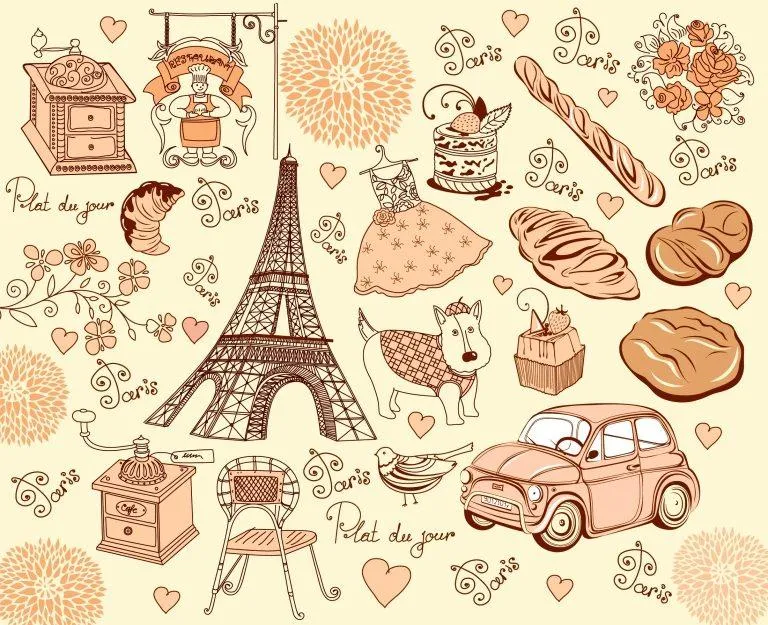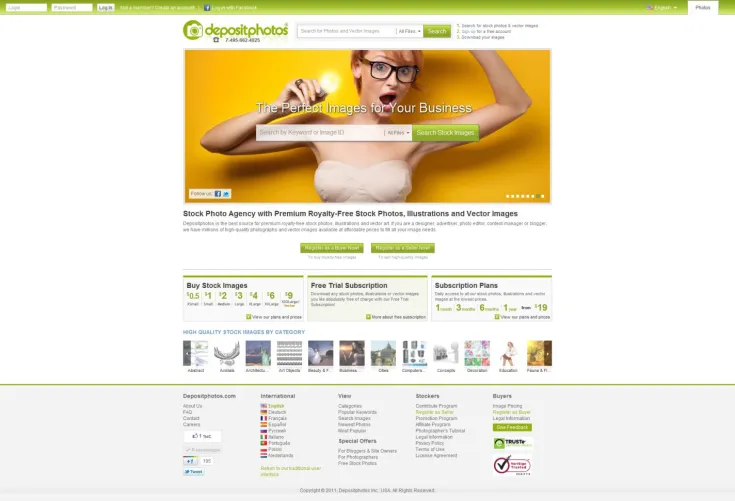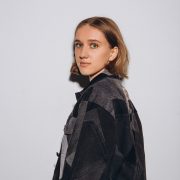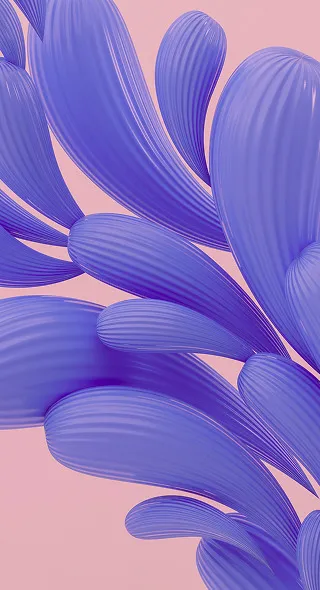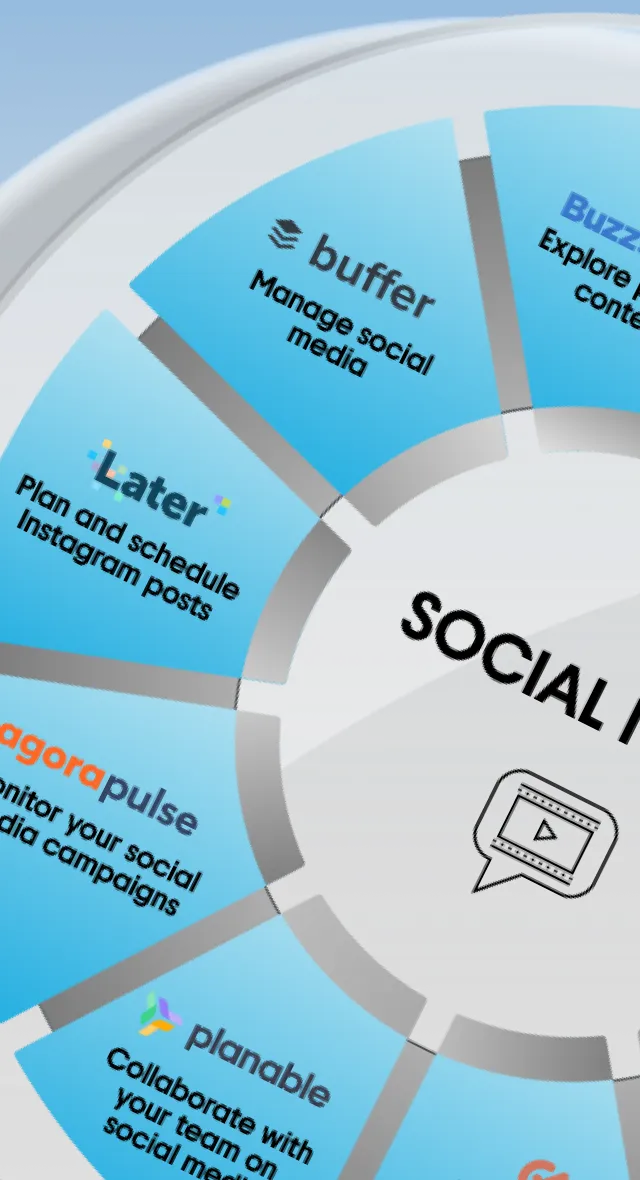How to Prepare for a Major Career Change with Anna Lebedeva, Paris with me founder
When you have a more traditional job, a creative one might seem unattainable. How do you make up your mind about what you want, and then turn it into a source of income? We talked to Anna Lebedeva, who successfully walked this path, in hopes that her experience could answer some of your questions. Keep on reading to find out more!
Anna Lebedeva, the founder of Paris with me, is a genuine multihyphenate. She studied business, but is a full-time content creator now. Anna used to go to a Parisian office every day to work in wholesale commerce, but today she spends her lunchtime next to the Atlantic ocean.
As a content creator and photographer, she has collaborated with some of the coolest brands out there: Pangaia, Volvo, Galeries Lafayette, Huawei, Armani Beauty, L’Oréal, Elle. Even though all of it may sound easy and exciting, Anna had to face many inner and outer challenges to make it all happen. In this interview, she opens up and shares her experience.
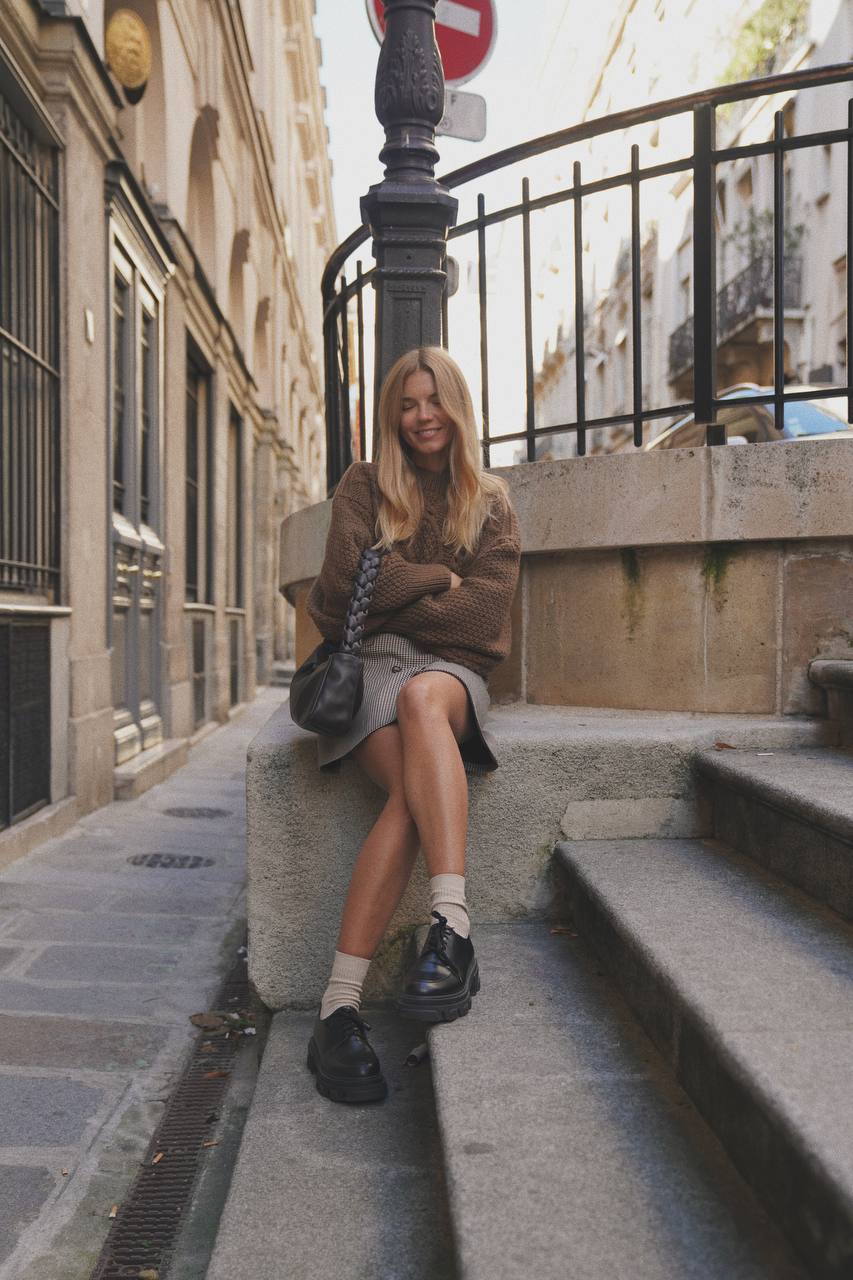
What’s your background? What did you study and what was your office job?
I studied marketing in Russia for 5 years, then I moved to France and continued my education there in international business and commerce. As a student in Paris, I had some part-time jobs, and I did an internship in international commerce, which later became my full-time job. The company I joined was an intermediary between French fashion brands and stores in Eastern Europe. I worked in wholesale commerce.
Was there anything creative about this job?
Almost nothing, but I still think that there is creativity in sales as well. When you work with premium brands, you deal with a level of design that requires briefing, so you dive deep into the creative background of every collection you work with. And even though you don’t create anything yourself, you’re still a part of a complex process that requires a lot of creativity. Mostly though, my job was about sales and numbers.
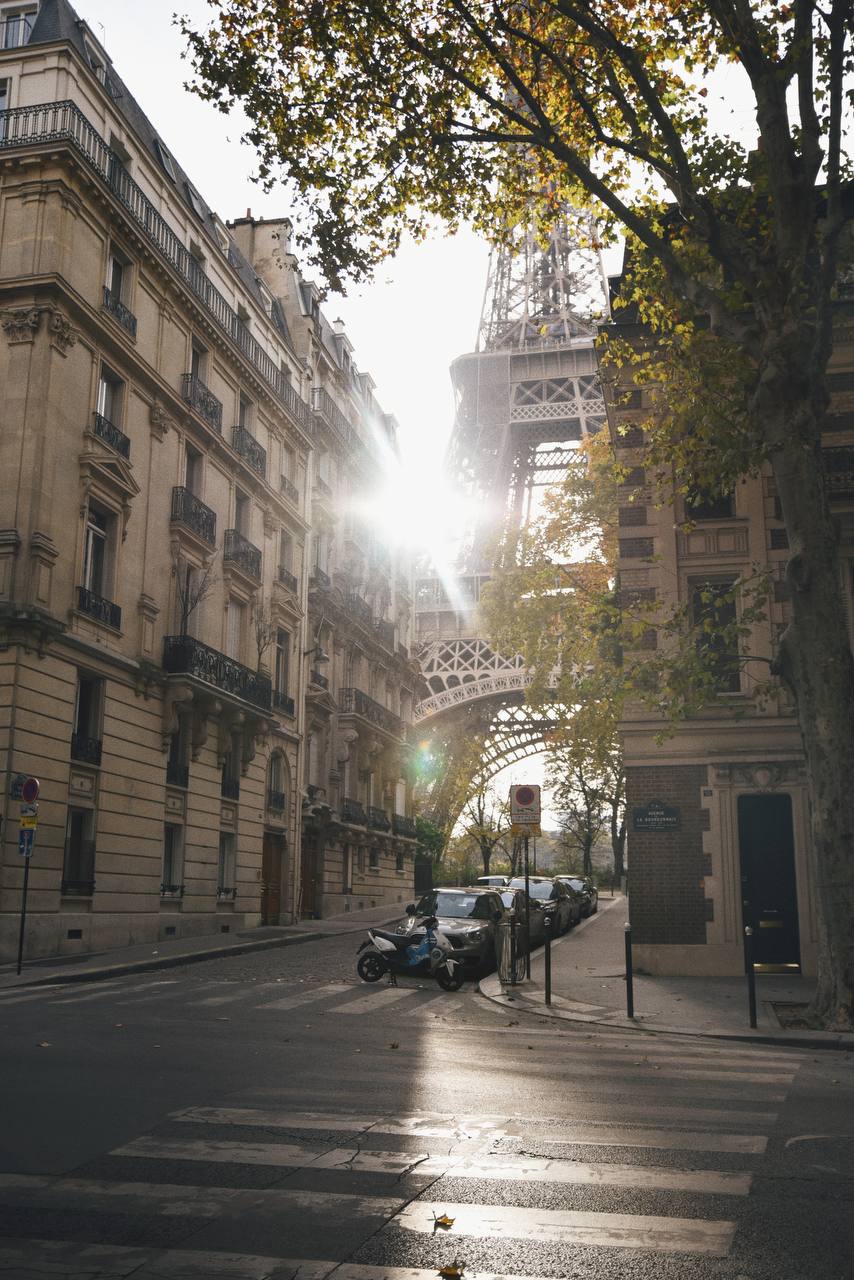
When did you start thinking about making a major career change? What was it about for you?
A few very important things had to work out before I could afford to start thinking about that. First and foremost, my residence permit. I was a foreigner, so receiving a stable permit that would allow me to change jobs was crucial for me.
How long did that period last?
I had moved to France in 2011, I started thinking about quitting my office job in 2016, and I did it a year later. I had been doing my job for five years when I left.
What made you consider that change?
After I graduated from university, I began working full-time, and I discovered that I had a lot of free time. There were very few places with good coffee in Paris back then, so it was an exciting adventure for me to discover and explore them. I would spend my weekends going on long walks, finding new spots, taking photos there, and posting them on Instagram. Initially, I had an idea to create a coffee guide around Paris. The more I shared, the more followers I got.
Then I began posting photos of the city, and it definitely attracted even more people. For a while, I wasn’t gaining anything apart from the social following, but at some point, I began receiving invitations to events and small gifts. And then, I had a few paid partnerships, which was very exciting for me. My collaboration with L’Oreal Russia was the breaking point when I realized that I could potentially do this full-time. We shot a major project for their YouTube channel with a huge production team.
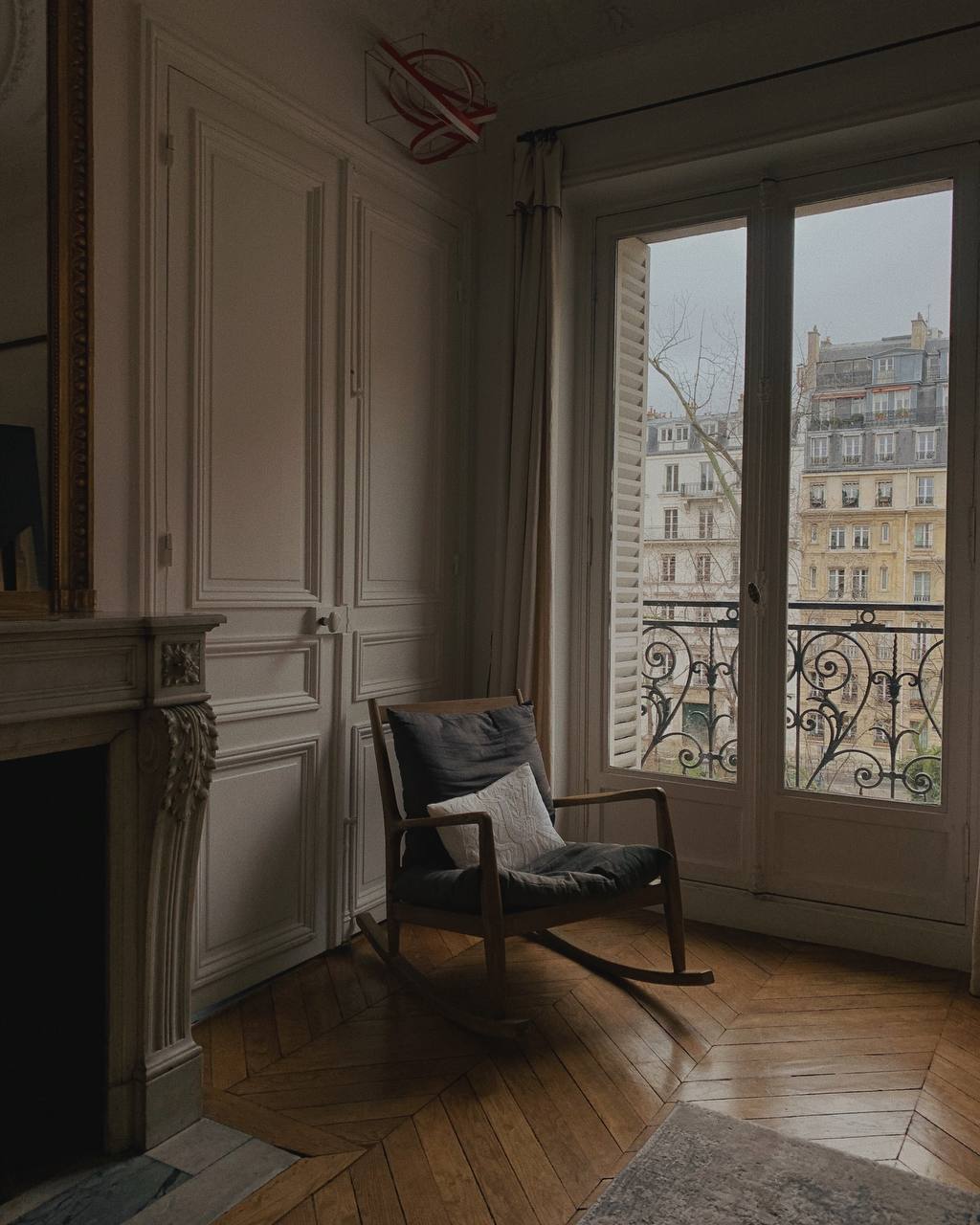
So when you thought about quitting your office job, you imagined yourself being a full-time content creator on Instagram?
Yes, this was the plan. I thought that my blog would become my primary source of income.
But it wasn’t the case yet, right?
No, I had some paid partnerships, but it wasn’t enough to cover all of my expenses. Also, my schedule was obviously a restriction because I could not attend various events and meet new people on weekdays, so I didn’t have access to many opportunities.
What did you do after deciding to quit your office job? How did you prepare for this major change?
It has always been very important for me to save up. I’ve been doing it since getting my full-time job. However, I didn’t have a financial goal or a system. I would just save up whatever I had left at the end of the month. When I started planning to quit my office job, I had enough savings to live moderately for about a year. I’d have to make some sacrifices, but I’d be able to cover all the basics. I needed to have this safety net to avoid extra stress about the lack of income during the first few months without my office job. This was the biggest and the most critical part of my preparation.

How did you imagine your new life? What did you think being a full-time content creator would be like?
I had literally no idea, and I had no particular plans. I just dreamt of spending my first week in bed because I’ve always hated waking up early. And then I wanted to dedicate the second week to exploring Paris during weekdays, which I used to spend in the office. I didn’t spend that much time in bed, but I went on walks around the city a lot.
Did you have to make any legal changes after quitting?
Well, luckily, I was already registered as an entrepreneur. I had to do it for the paid partnerships I had previously done, so I didn’t have to deal with that part after quitting.
And how did you figure out what to do next?
I kind of didn’t. I just sat around and waited for a couple of months. I expected partnership proposals to just come through on Instagram. Two months later, I began freaking out. That’s when my partner suggested that I try working as a photographer for personal clients. Obviously, I was already taking quite a few photos as a content creator, but working with people was a terrifying step. But I liked the idea, so I spent a significant amount of my savings to get a new camera. Suddenly, I was less focused on creating content for my Instagram than on taking photos of tourists. It helped me out a lot, though. Otherwise, I would have struggled during that first year of freelance.
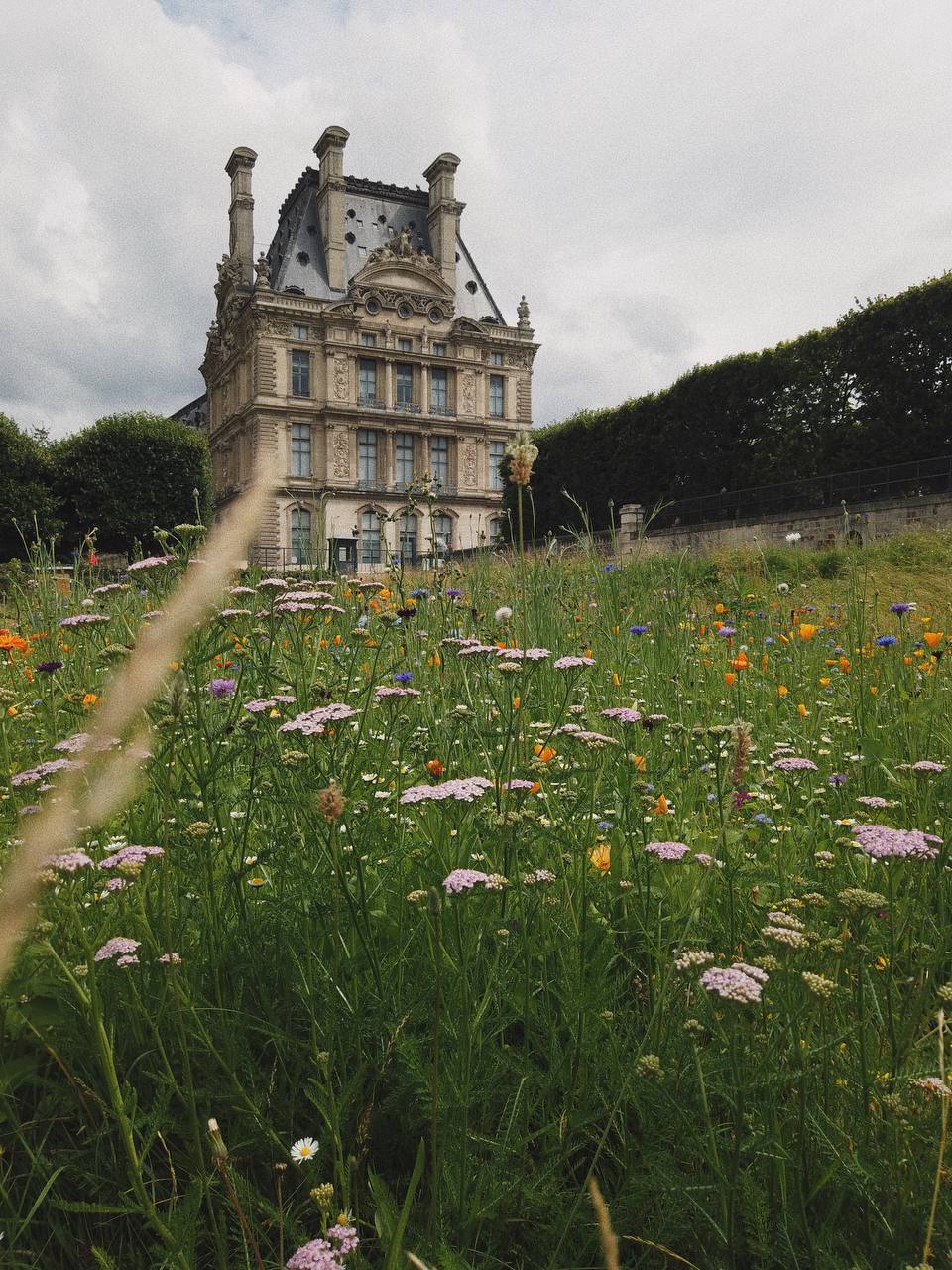
What was your attitude towards this change? How did you feel about suddenly choosing to be a photographer and working with personal clients?
It was extremely difficult for me. I still struggle with calling myself a professional photographer, even though I’ve been doing it for years. I definitely have Imposter syndrome. Back then, I was terrified. Also, I was surrounded by professional photographers with diplomas, a lot of experience, and great photoshoots. I felt scared and ashamed of saying that I was a photographer like them. They’ve always been very supportive, but I still doubted myself a lot. However, my priority was to start earning money again, so it helped me cope with these emotional challenges.
How many photoshoots with tourists did you do during that first year?
From 3 to 5 every week for about 5 months, so around 80 in total. Some of them lasted an hour; others went for as long as three. Working this much allowed me to get the experience I needed and to feel more comfortable doing it. Every week was slightly different regarding the amount of work, but the photoshoots were very similar. Everyone wanted to go to the same locations and use the same poses. It was challenging to deal with new people every time, but it was also a valuable experience for me.
What happened next? This isn’t what you’ve been doing for the past few years.
When I noticed that I had very little time and energy left for creative content, I realized that I had to make some changes again. I’ve always been more interested in working with brands.
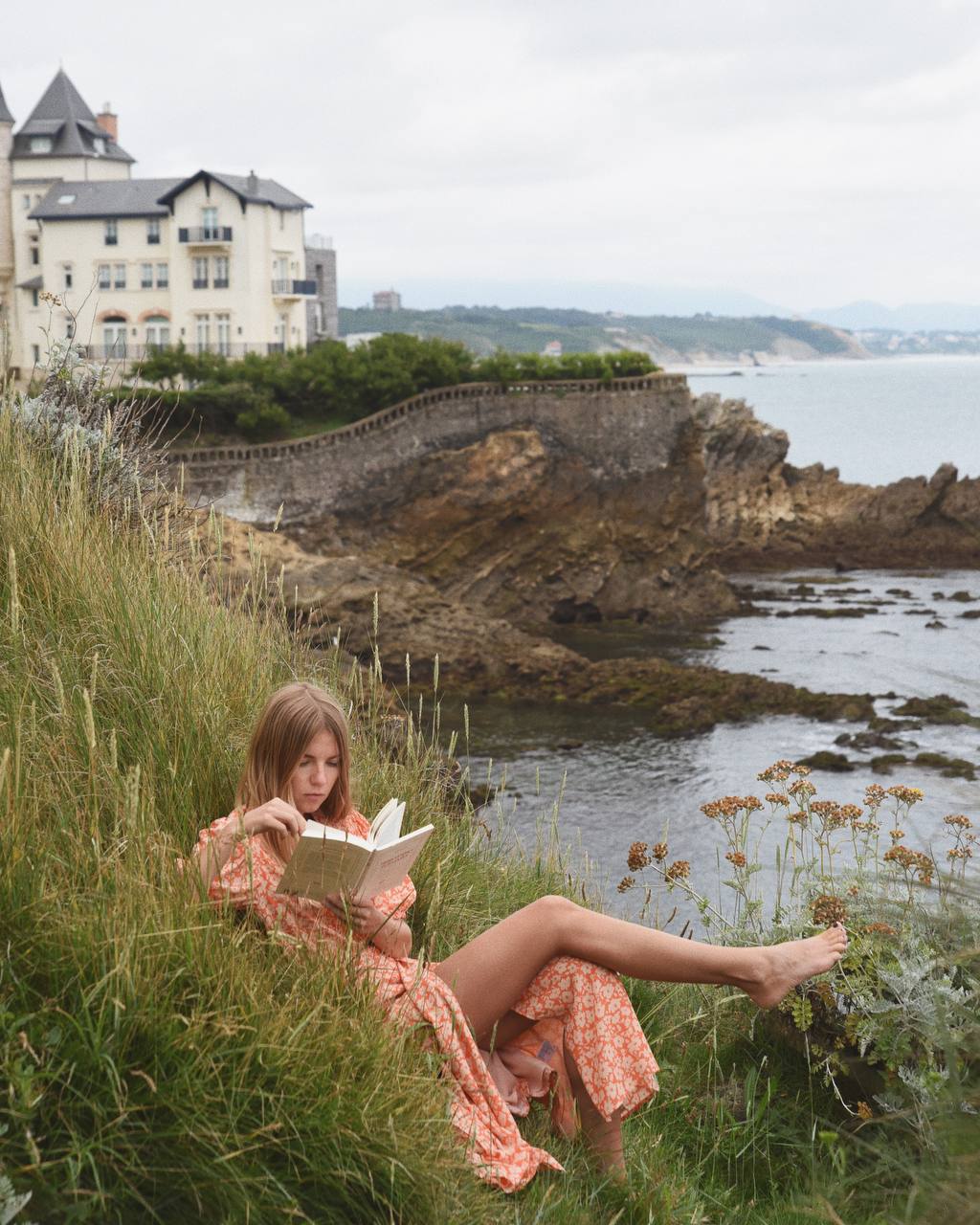
What made it possible for you?
After a year of freelancing, I got my first big regular client – Elle. I need to clarify that I’m not talking about the magazine. Elle is also a trademark under which many different products are sold worldwide. It’s a huge corporation and business.
I had to create quite a lot of content for them every month, and they were paying me well, so I could afford to work with personal clients less and focus on brand partnerships. Basically, I was an art director, a photographer, a content creator, an editor, and a model for them. Sometimes I was behind the camera, sometimes I was in front of it, but the ideas were always mine. Also, there were many tasks behind the scenes: e-mails, discussions, agreements, contracts, plans, invoices, parcels, approvals. It was a lot of work!
I worked with them for 3 years from 2018 till 2021. And even when we stopped collaborating every month earlier this year, we still continued doing some smaller projects together.
Was it difficult for you to end this partnership?
Yes, I got used to having a regular client, which implied a certain amount of work and a stable fee. I was terrified and anxious again. As I’m looking at my income at the end of this year, I can clearly see that I’ve earned significantly less than I did in 2020. It’s painful to acknowledge that.
What do you think about it now? Do you regret making this decision?
I’d like to close this financial gap in the future, but I don’t regret it. I realized that it was the right thing to do. I felt dissatisfied for a while before making this decision, so I’m glad that I did it. Also, I was planning to leave Paris then, and I think it encouraged me to go for it. Nevertheless, it was challenging and scary. And no matter what, I think that the best thing you can do for yourself is save up money. Always and in any circumstances. Savings allow you to be more flexible with the decisions you make.
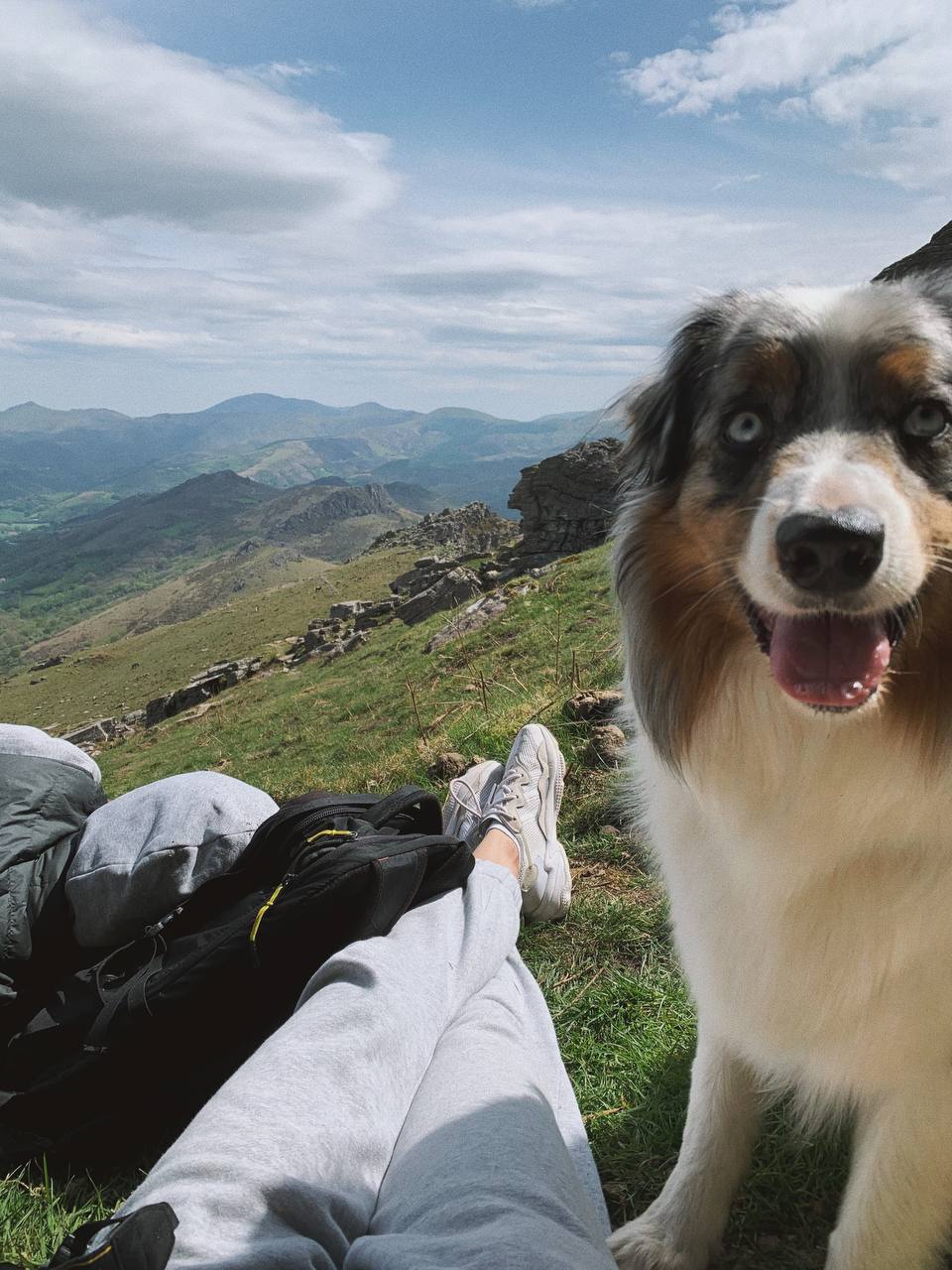
You quit your office job 4 years ago and you’ve made several professional iterations since then. Where are you at right now?
It stresses me out that my income relies on paid partnerships and statistics on Instagram. I feel trapped by the ever-changing algorithm. I wish I could try new things based on what I’m curious about, instead of what the app favors. I’ve been growing my account for years, and it would be a disappointment to ruin it in an instant. However, I love collaborating with brands and creating content for them, so I’d like to continue and diversify my income sources.
What will your next steps be? Would you like to start your own business?
Yes. I do know for sure that I don’t want to go back to the office. I’ve already tried a few different endeavors by creating photo editing presets and selling vintage decor online. I’ve been fond of taking photos of objects for years now, and I’d like to keep on doing it. However, I haven’t found a way to make it profitable yet. And I definitely want to keep on creating content. I love it, but I do need to stress out less.
How do you see your further development as a content creator and a photographer?
I don’t want to be in front of the camera all the time. I’d like to be the art director and the photographer more often. Saying these words out loud makes me uncomfortable because my self-doubt gets louder and louder, but these are my aspirations. I might be the wrong person for this interview and topic.
No, I actually think it’s helpful to know that you’ve changed your life dramatically, and you’ve worked on so many exciting projects despite these fears and doubts. You’ve allowed yourself to explore different domains and ways to express your creativity. I think it can support so many people out there.
Yes, I understand what you mean. Even though I struggle with identifying who I am and what I do, what my title is, I also appreciate my willingness to try new things. At the moment, I’m obsessed with video. I want to learn and practice as much as possible. I’m eager to grow and improve in this regard because it fulfills me.
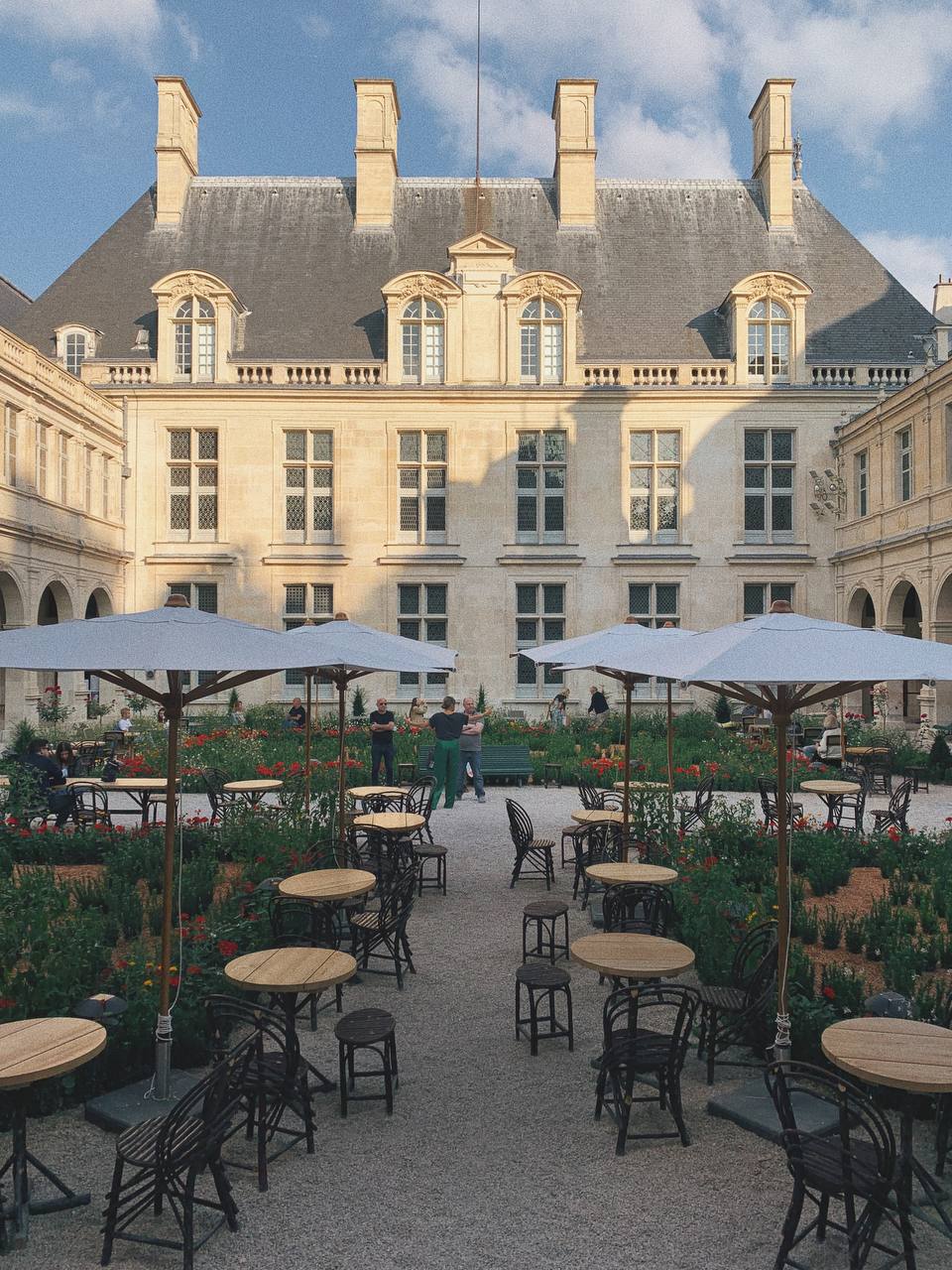
What other challenges have you faced as an independent creative in the past 4 years?
I think it’s very difficult when you have to be in charge of both creative and financial matters. On one hand, you have to fight for your vision. And on the other hand, you need to deal with money. Figuring out how much to ask for as a freelancer is so confusing. And sometimes, you need to put pressure on companies to get what you ask for. It’s a lot of stress. Basically, as a creative, I doubt myself all the time, but I also have to sell myself well to keep on doing my job. It’s an intense combination, isn’t it?
How do you deal with this pressure?
It’s essential to avoid comparing yourself to others. You have to remember that you’ve already been hired, so there are people who see value in you, your vision and creativity, in what you can do. You might have a bad day or a bad week, but you have to remind yourself about everything you’ve already accomplished. You have to keep on believing in yourself even when it seems impossible.
Do you have any advice regarding finances?
I always try to ask what the budget of the project is. Not everyone responds, but sometimes they do, and it gives me an idea of how much I could ask for. I think this is the advice I’d give. And in general, I try to ask as many questions as possible.
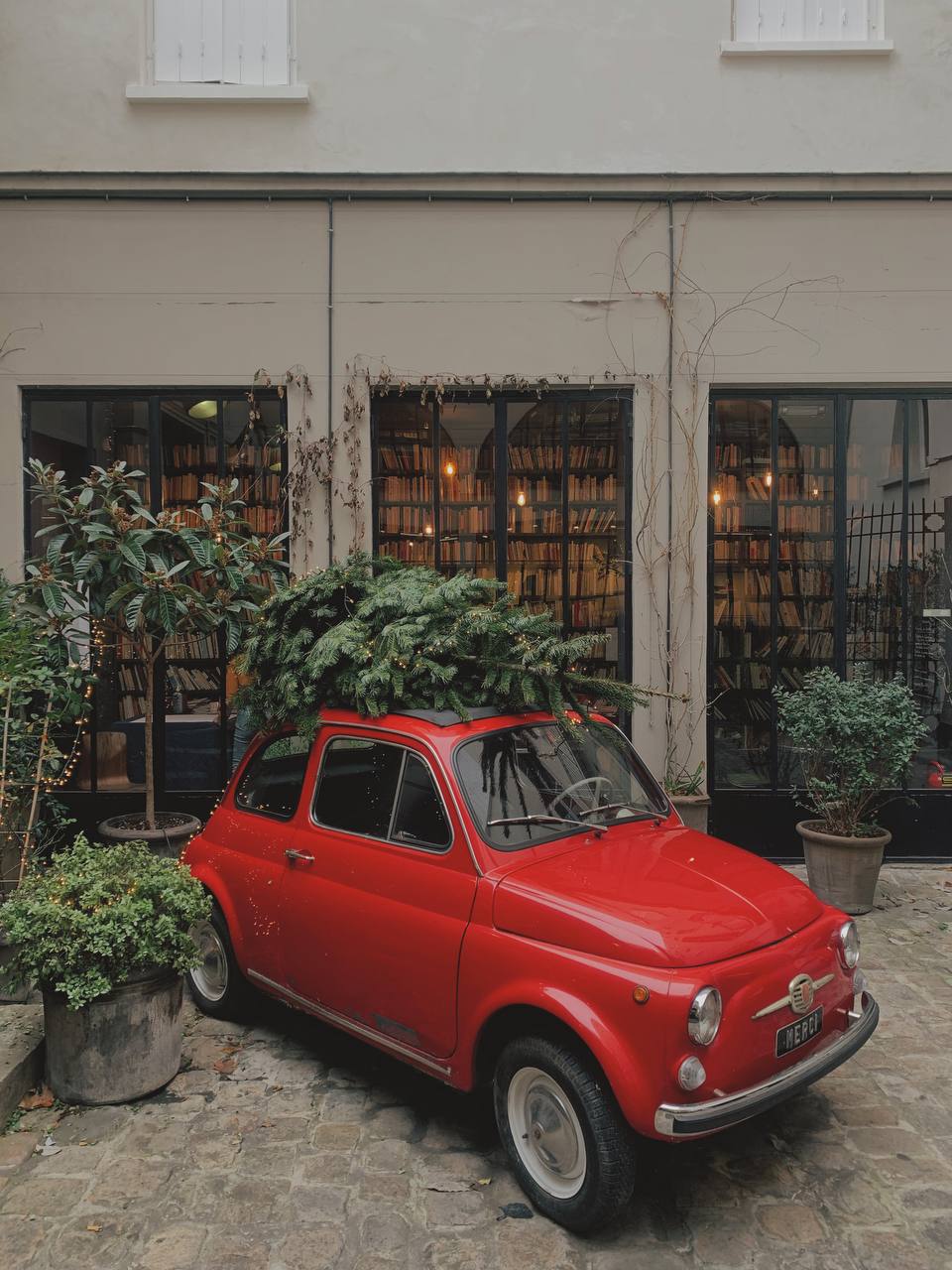
You mentioned that your close friends are photographers. How has your environment impacted the choices and decisions you’ve been making?
It has had a significant impact on me. When I had my full-time job, I was eager to build a corporate career, and I was surrounded by people who had the same goals. When I created an account on Instagram, I began making an effort to meet like-minded people, other content creators and photographers. I think that it’s easier to make difficult decisions and big changes when you’re surrounded by people who are already living that way. Also, it’s so important to be able to ask questions. It might seem like no one wants to share anything, but if you act respectfully and express genuine curiosity, you might get a lot of valuable answers.
What would you recommend to someone who wants to meet like-minded people?
I would use hashtags and geotags to find people living in the same area and doing something I’m interested in. I wouldn’t reach out to creators with a lot of followers. Instead, I’d look for someone who’s starting out and is willing to connect with others. Also, I’d probably try attending specific events in real life. For example, a lecture or a workshop by someone whose work I admire. It’s the perfect environment for meeting new people.
